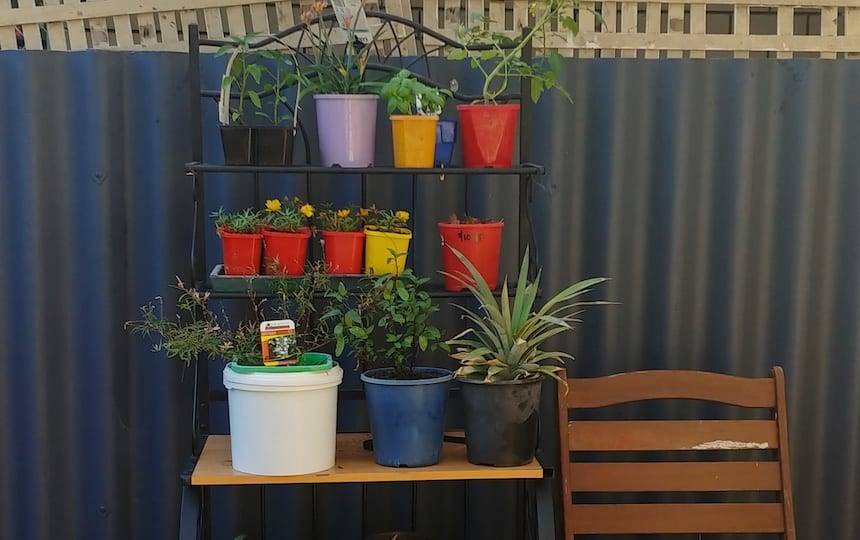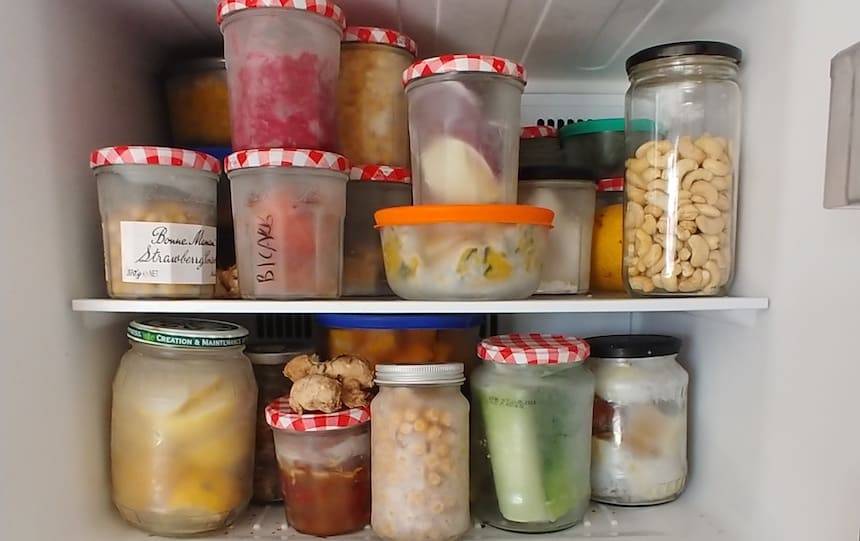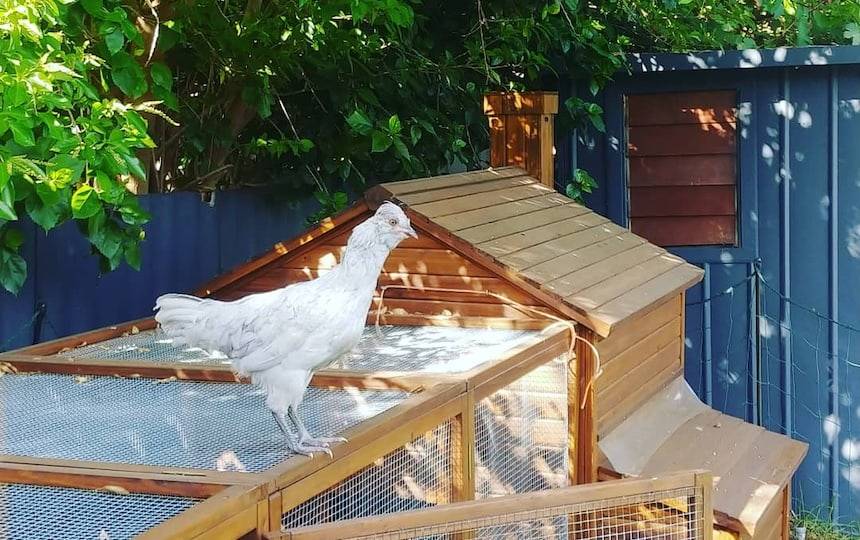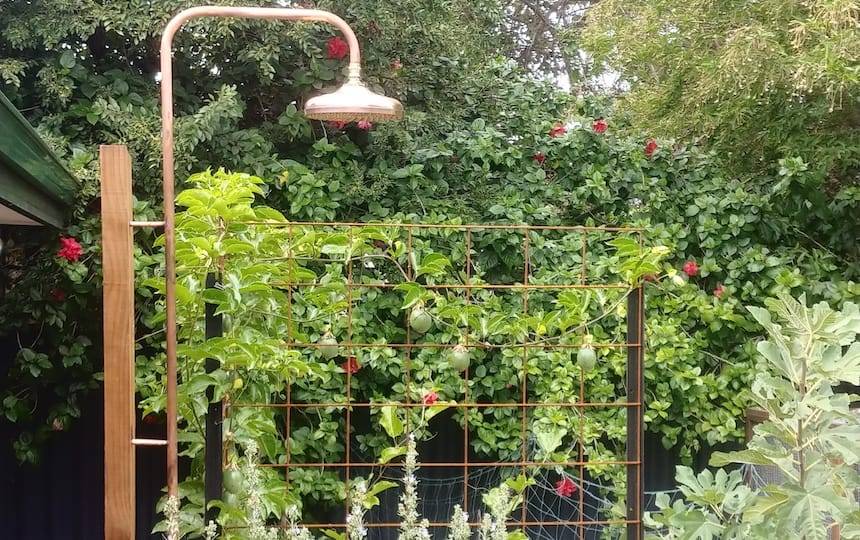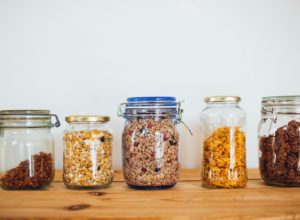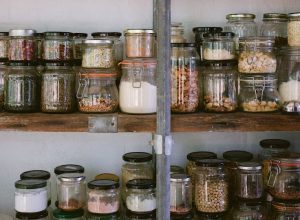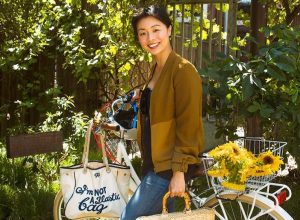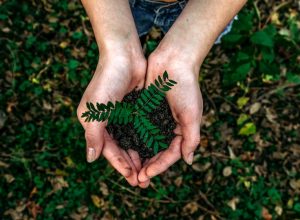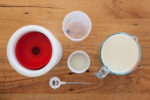We chat to sustainability educator and author of ‘Less Stuff’, Lindsay Miles, about her journey to live waste- and plastic-free.
Lindsay Miles’ waste-free journey started back in 2012 after viewing the documentary ‘Bag It: Is Your Life Too Plastic?’, which delves into the effects of plastic bags and other plastic consumer merchandise, and its effects on the environment and human health.
“[After seeing the doco] I suddenly realised I had the opportunity through the choices I was making every day to be part of the problem… or part of the solution,” says Lindsay.
“I became pretty passionate about the topic, first sharing what I was learning on my website – Treading My Own Path – and later giving talks and running workshops.”
Lindsay has since written two books on the subject of waste-free and plastic-free living –‘Less Stuff’ which offers advice on living a more meaningful life with less waste and less “stuff” and ‘The Less Waste No Fuss Kitchen’, which looks at reducing plastic and packaging use, lowering our carbon footprint and reducing food waste.
“I’m a big believer that individuals can make a difference,” says Lindsay. “However, I’m also a believer that we need huge system change to solve some of the global issues we are currently facing. I don’t think we can have one without the other if we are going to succeed.”
Here we chat to Lindsay about her journey to live a zero waste lifestyle and living with less stuff, her advice for others treading a similar path and how they can be wary of greenwashing, as well as her thoughts on whether the Covid-19 pandemic has stalled the momentum behind the zero waste movement.
The “zero” in zero waste can be intimidating to some people. What would you say to people who think being truly zero waste is unachievable?
I would say, “You’re absolutely right – yes, being truly zero waste is unachievable right now”. We don’t live in a society set up to make zero waste living easy or accessible, and our systems aren’t designed with zero waste living in mind.
Yes, zero waste living can be a challenge. Depending where you live and your circumstances, zero waste living will be more, or less, of a challenge, but still a challenge. But zero waste was never about achieving perfection. The way I see it, zero waste is more an ideal, a philosophy or a set of guidelines that we aspire to achieve, rather than a literal goal. And challenges can be fun!
People who live zero waste are trying to avoid sending anything to landfill, but the “zero” will always be elusive. It’s something to aim for, and really, it doesn’t matter if you can fit your waste in a jam jar or not. It’s about all of us doing what we can, to create a new normal and help shift society to one that values resources rather than wastes them.
And if you’re wondering why the movement is called “zero waste” – well, sometimes labels are easy. “Zero waste” is more succinct than saying the “generally-not-throwing-much-away-but-the-odd-thing-slips-through-and-I’ll-do-better-when-society-catches-up” lifestyle, which doesn’t exactly roll off the tongue!
Some people like labels; they find them helpful in explaining what they are trying to do and for starting conversations. You’ll sometimes hear the terms “low waste”, “less waste” or even “near-o waste” lifestyle used instead, which have a bit more flexibility. And others don’t like labels. Really, what it’s called is not important, it’s the actions that we take.
As for the “zero waste is intimidating” part – that tends to happen when we look as the situation as one problem to solve. When we break it down into thousands of individual habits or swaps, it becomes a lot less intimidating.
Going zero waste sounds hard, but buying a solid bar of soap instead of liquid handwash, or an olive oil refill rather than a plastic bottle sounds much more achievable. One by one, we make the changes and we get closer to the goal.
One of the complaints around the zero waste lifestyle is that it creates more work, ie. having to make things from scratch as opposed to buying food in plastic packaging. What do you say to this?
There’s so much I could say about this, and I don’t think you’re going to give me the space! It’s very hard for any of us to know how someone else will find living zero waste – we all have different circumstances, and we all adapt differently to change and respond differently to challenges. And so I can’t say how zero waste living will work for you. I can’t say it will create more or less work for you, because I don’t know how much work you’re doing now.
Some things take more time and others less time; some things cost more and other things are more affordable; some work is enjoyable, and other work is not.
Thinking about myself, I spend more time in the kitchen now than I used to before I went down the zero waste path. But I enjoy being in the kitchen, and I like to cook.
When I started making all my food from scratch, I found recipes that were low effort – one-pot dishes like dahl or stews – and batch cook so I always have leftovers (it never takes twice as long to cook twice as much, and there’s only one lot of washing up). Most vegetarian dishes will keep in the fridge for a week. Now I spend more time cooking, but my grocery bill has halved.
It’s a myth that you have to make everything from scratch though. There are plenty of options for ready-made food that comes plastic- or waste-free. Again, it depends on location, budgets and dietary requirements whether you have access to this, but even one option is a start.
What’s the single most important lifestyle change people can make when it comes to reducing their household waste?
Buy less stuff. Definitely less new stuff. When we think of plastic we tend to think of food packaging, or maybe the plastic in the bathroom, but everything we buy uses resources (and probably comes packaged in cardboard and plastic).
The steady stream of textiles, homewares, clothing, electronic gadgets, sports equipment, bedding and appliances is all resources and packaging, and most of it will barely be used before being thrown away.
If we change our perspective so that we value what we have, we fix things when they break, we make do where possible, we celebrate how old things are rather than how new they are, and we buy less (new) stuff, that will have the biggest impact. And stepping off that consumer treadmill is quite a relief!
You’ve taken your sustainability journey further than just plastic-free living. You’re also growing your own food and delving into urban foraging. What are your top three tips for people who may feel intimated by the jump from zero waste to self-reliant living?
Hmm, this is hard to answer as I was a vegetable grower long before I went zero waste. I had an allotment for several years back in the UK, and when you grow food you realise you have to learn how to preserve food pretty quickly!
When I moved to Australia in 2011 I had to give up the allotment, and moved to an apartment where I couldn’t really grow anything. Maybe that was why trying to go zero waste really appealed to me – it felt within reach when so many other things did not.
But I do know that lots of people come along this path from different places. Lots of people interested in reducing their plastic use first hear about the problem as a health issue rather than an environmental one. It’s only as they start the journey that they discover the harm it causes wildlife and the planet.
There is so much crossover with all of these different lifestyles, because they tend to have the underlying ideal of not harming the earth, one another or other living things. So you might start because you care about one thing, and then get interested in exploring other aspects of “kinder living”.
The best way to learn more is to connect with other people. Whether that’s on social media or in-person, at informal gatherings or organised events and workshops, you’ll see people doing things you’d never thought about before. See what lights you up, and follow that.
How do you think Covid has changed people’s focus on sustainable living? Do you think it has made things easier or harder for those striving to live zero waste?
There are certainly a lot more gardeners and bread bakers now! I think Covid-19 made a lot of people feel vulnerable, and learning skills in self-reliance is a great way to do something proactive and positive.
Personally, Covid-19 did not affect my ability to live zero waste. Aside from a few more paper bags for groceries (where I’d usually take my jars) during the national lockdown in March, not much changed for me. But I live in Perth, WA. Our bulk stores never shut down. I don’t get takeaway coffee. I could still bring reusable bags.
I know not everyone can say the same, especially those people in harder hit areas and overseas. Many people lost their zero waste options.
There is definitely more single-use packaging. But I do think that it is a blip and as restrictions ease, those people who had to let their habits drop will be keen to get back to it, and new people will be inspired. Legislation against single-use plastics continues to be passed. Perhaps I’m an optimist, but I’m feeling positive about it.
As sustainability has become more mainstream, greenwashing is a real problem. Can you weigh in on this issue? How can people discern between a truly ethical and sustainable brand versus a business cashing in on the eco-living bandwagon?
Great questions to ask ourselves are: What is the business model of this company and what products do they sell? Are they selling one product, do they have a small range of quality products or do they literally sell millions of items with new stock landing each week? Is the product innovative, or just a copy of an already existing product? Does their product even need to exist?
The world has an overconsumption problem. We’re using resources at a faster rate than we can replenish them. And if a company centres mass resource extraction, mass production and mass consumption as its business model, it’s not sustainable however much it tries to tell us otherwise.
Pro greenwashing tip: the more money a company spends on telling us it’s sustainable and ethical, the more we need to be suspicious, look deeper and ask questions.
Climate change news can cause a lot of people to feel anxious. How do you ward off eco anxiety?
For me, taking action and doing something practical helps me ward off anxiety. I’m a natural problem solver and this helps me find a focus.
Right now, I’m spending more time doing projects and getting involved with my local community, because I think we’ve seen in all the crises over the last couple of years, how important it is to have a resilient community.



